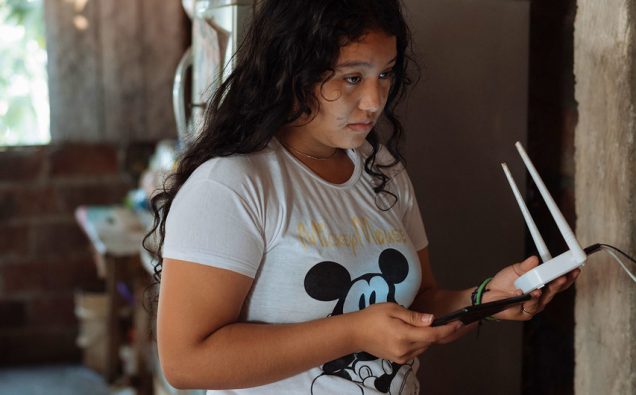
Since its outbreak nearly two years ago, the pandemic has been hurting the prospects for growth for young people around the world financially as lockdowns, closures, loss of tourism, and educational advancement opportunities all continue to strike as impediments.
Now, a new report says schools closures during the COVID-19 crisis could cause a staggering $17 trillion in lost lifetime earnings for the students.
The State of the Global Education Crisis: A Path to Recovery, published by the World Bank, the UN Educational, Cultural and Scientific Organization (UNESCO), and the UN Children’s Fund (UNICEF), sheds light on the losses students face in an uncertain time.
The UN says the monumental $ 17 trillion figure has been calculated in present value, representing roughly 14 percent of current Gross Domestic Product (GDP).
The new calculation is way more than the $10 trillion estimates from a year ago.
The pandemic brought education systems across the world to a halt, says Jaime Saavedra, World Bank Global Director for Education.
More than 20 months later, millions of children remain shut out of school, while others may never return. The situation is worse in low and middle-income countries, with the share of children living in “learning poverty” feared to spiral from 53 percent to 70 percent.
“The loss of learning that many children are experiencing is morally unacceptable,” said Saavedra.
“And the potential increase of ‘learning poverty’ might have a devastating impact on future productivity, earnings, and well-being for this generation of children and youth, their families, and the world’s economies.”
Here is what the UN report says:
Regional evidence from countries such as Brazil, Pakistan, India, South Africa, and Mexico details substantial losses in maths and reading skills, sometimes roughly proportional to the length of school closures.
There was also diversity across countries, and by subject, students’ socioeconomic status, gender, and grade level.
However, evidence from across the world suggests the pandemic has exacerbated inequities in education, with children from low-income households, those with disabilities, as well as girls, less likely to access remote learning.
Additionally, younger students had less access to remote learning and were more affected by learning loss than older counterparts, especially pre-school age children.
Furthermore, the most marginalized or vulnerable students were disproportionately impacted, among other findings.
Robert Jenkins, UNICEF Director of Education, calls for reopening schools and keeping them open, to “stem the scars on this generation”, while warning of the risks of inaction.
“The COVID-19 pandemic shut down schools across the world, disrupting education for 1.6 billion students at its peak, and exacerbated the gender divide,” he said.
“In some countries, we’re seeing greater learning losses among girls and an increase in their risk of facing child labor, gender-based violence, early marriage, and pregnancy.”
With less than three percent of government stimulus packages allocated to education, the report underlines the need for greater funding.
Reopening schools must remain a top and urgent priority globally, while countries should implement Learning Recovery Programmes to ensure students in this generation will attain at least the same competencies as their predecessors.
Stefania Giannini, UNESCO Assistant Director-General for Education, underscores the need for government action.
“With government leadership and support from the international community, there is a great deal that can be done to make systems more equitable, efficient, and resilient, capitalizing on lessons learned throughout the pandemic and on increasing investments,” she says.
Building more resilient education systems for the long term has become more important than ever before. The countries need to consider taking steps such as investing in the enabling environment to unlock the potential of digital learning opportunities for all students.
The role of parents, families, and communities in children’s learning must also be reinforced.













